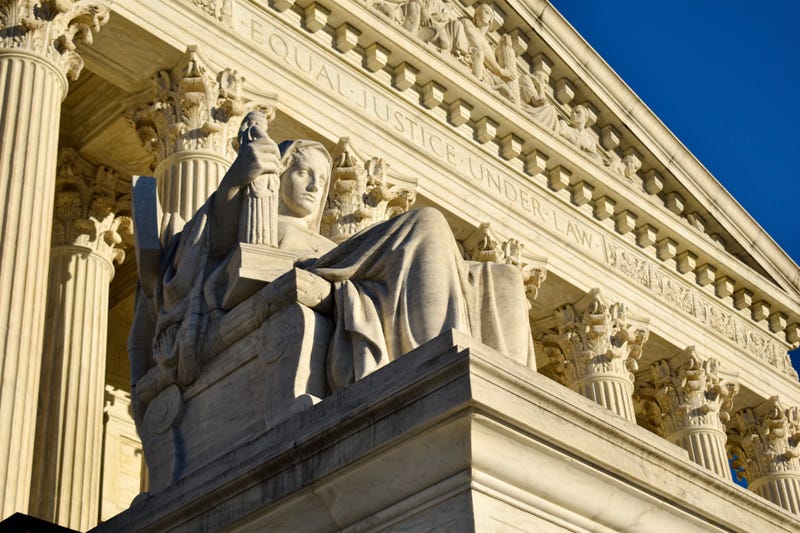
The Supreme Court has announced that for the first time in the high court’s history, it will follow a new code of conduct after justices were accused of unethical actions.
The court released a 14-page document that included five canons of conduct, which gives guidance to justices when it comes to issues they should recuse themselves on and activities they should not engage in.
Most of the rules in the new code of ethics are not new to the court, the justices shared in a statement attached to the document.
However, the nine justices said that not having the code published “has led in recent years to the misunderstanding that the justices of this court, unlike all other jurists in this country, regard themselves as unrestricted by any ethics rules.”
Moving forward, the justices have agreed to follow the code of ethics set forth on Monday.
“The undersigned justices are promulgating this Code of Conduct to set out succinctly and gather in one place the ethics rules and principles that guide the conduct of the Members of the Court,” the justices said in the signed statement.
Inside the document, the justices will be required to “uphold the integrity and independence of the judiciary” while also avoiding “impropriety and the appearance of impropriety in all activities.”
The code advises justices to refrain from using their taxpayer-funded staff to perform non-court work. It also addressed impartiality directly.
"A Justice should not allow family, social, political, financial, or other relationships to influence official conduct or judgment," the code says. "A Justice should neither knowingly lend the prestige of the judicial office to advance the private interests of the Justice or others nor knowingly convey or permit others to convey the impression that they are in a special position to influence the Justice."
The code goes on to advice justices not to speak about matters before the court in a public setting. Instead, their public appearances are supposed to be "civic, charitable, educational, religious, social, financial, fiduciary, and government activities" unrelated to the law.
"A Justice should not participate in extrajudicial activities that detract from the dignity of the Justice's office, interfere with the performance of the Justice's official duties, reflect adversely on the Justice's impartiality, lead to frequent disqualification," it says.
The Supreme Court isn’t alone in wanting to install a code of conduct for the justices, as Democrats on the Senate Judiciary Committee have also proposed legislation to do something similar.
After the announcement, Senators shared their thoughts on the new code of ethics, with Sen. Sheldon Whitehouse (D-R.I.) saying that it was a step in the right direction but that allegations brought against the justices need to be investigated.
“This is a long-overdue step by the justices, but a code of ethics is not binding unless there is a mechanism to investigate possible violations and enforce the rules,” Whitehouse said in a statement.
